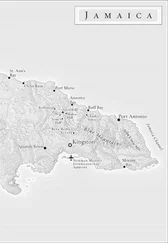“Not his successors.”
Maybe they were Combs’ objective? “What’s their game?”
Her glare sharpened. “They are all we have left.”
“Who is we?”
“Those of us who believe.” Her eyes were hard with indignation.
“That was a long time ago. It’s over.”
“Yet you and Herr Combs are both still interested. Herr Combs knew that my father worked for the Führer. That’s why he came. He also knew it was Hitler’s wish that Bormann survive the war. A letter from Hitler himself directed my father to do whatever the Brown Eminence desired. So my father spent his life hiding Martin Bormann.”
He waited for more.
“Bormanns appeared everywhere. Those who searched had plenty to look for, but never the actual man.”
He vaguely recalled reading about Bormann sightings throughout Brazil, Argentina, Bolivia, and Paraguay. A few Bormanns even turned themselves in to the authorities, claiming a need for justice in their old age, but all were eventually confirmed as either deranged or delirious.
“What does any of that matter anymore?”
“What you mean is, why did it matter to Herr Combs.”
That’s exactly what he meant.
“Bormann was no Hitler. The Führer was special. Politicians before him talked down. Bormann talked down. Hitler talked to us.”
It seemed she wanted to speak her mind, so he let her.
“I’ve watched Hitler speak many times on film. He would parade into a hall to some lively military tune. Oh, I loved that music. He always wore his brownshirt uniform and had the shiniest boots. Such a sight. People stood while he spoke, as they should. He loved them, and they loved him.”
She was clinging to a vicious fantasy. But if the memory loosened her tongue, he was willing to allow her the luxury.
“What happened to Bormann?” he asked again.
She spat on the floor. “He was a sloven bastard. The Führer made a horrible mistake trusting that one.”
“Why are you telling me all this?”
She shrugged. “Why not? As you say, it was a long time ago.”
“Could you—”
“I’m through talking to you.”
She started to leave the barn, the cat nipping at her heels.
He tried, “You speak of the past with reverence. Are you a Nazi?”
She stopped, turned back, and surveyed him with an insolent air of triumph.
“I am a faithful follower of my Führer.”
And she ambled off.

His visit with the old woman disturbed him. It was not at all what he’d expected. Never had he thought Martin Bormann, Eva Braun, and Adolf Hitler would be the subjects of their conversation.
Before leaving Turingia he parked the car under some shade trees and used his smartphone to access the Internet. There he found a concise summary of Martin Bormann’s life.
Born in Halberstadt on June 17, 1900, the son of a former Prussian regimental sergeant major, Bormann dropped out of school to work on a farming estate in Mecklenburg. After serving briefly as a cannoneer in a field artillery regiment at the end of World War I, he joined the rightist Rossbach Freikorps. He eventually entered the National Socialist Party, becoming its regional press officer in Thuringia and then business manager in 1928. From 1928 to 1930 he was attached to the SA Supreme Command and in October 1933 he became a Reichsleiter of the party. A month later he was elected as a Nazi delegate to the Reichstag. From July 1933 until 1941 he was the chief of cabinet in the office of the deputy Führer, Rudolf Hess, acting as his personal secretary.
There he began his imperceptible rise to the center of power, slowly acquiring mastery over the Nazi bureaucratic mechanism and gaining Hitler’s personal trust. In addition to administering Hitler’s personal finances, he controlled the Gauleiters and Reichsleiters, the men who administered the various lands in the Reich. His brutality, coarseness, lack of culture, and apparent insignificance led top Nazis to underestimate his abilities. His mentor Rudolf Hess’ flight to Britain opened the way for him to step into Hess’ shoes.
In May 1941 he became head of the party. Until the end of the war, Bormann was the fierce guardian of Nazi orthodoxy. He was an archfanatic when it came to racial policy, anti-Semitism, and the Kirchenkampf, the war between the churches. By the end of 1942 he was Hitler’s private secretary, taking care of tiresome administrative details and steering Hitler into approval of his own schemes. Ordered by Hitler “to put the interests of the nation before his own feelings and to save himself,” Bormann fled the Führerbunker on April 30, 1945, after Hitler was dead. Accounts of what happened afterward vary widely. According to some, Bormann was killed trying to cross Russian lines by an anti—tank shell. Doubts, however, have persisted and numerous sightings of Bormann have been reported, beginning in 1946. Having been sentenced to death in absentia at Nuremberg in October 1946, his true fate remains unknown.
All of the other sites he found confirmed the same information. Nobody really knew what happened. He then located what he could about Eva Braun.
Born in Munich in 1912 to a middle-class Catholic family, the daughter of a schoolteacher, Braun first met Hitler in the studio of his photographer friend Heinrich Hoffmann in 1929. She worked as Hoffmann’s office assistant, later becoming a photo lab worker, helping to process pictures of Hitler. Blond, fresh-faced, and athletic, she was fond of skiing, mountain climbing, gymnastics, and dancing.
After the death of Geli Raubal, Hitler’s niece with whom he maintained a long love affair, Braun became his mistress, living in his Munich flat. In 1935, after an abortive suicide attempt, Hitler brought her to a Munich villa, near his home. In 1936 she moved to Berchtesgaden where she acted as Hitler’s hostess. Every effort was made to conceal her relationship with Hitler, since the Führer was supposedly devoted solely to the nation. Few Germans knew of her existence. Even Hitler’s closest associates were not certain of the relationship, since Hitler avoided suggestions of intimacy and would often degrade and belittle her intelligence. She spent most of her time exercising, brooding, reading cheap novelettes, and watching romantic films. Her loyalty to Hitler, though, never wavered. In April 1945 she joined Hitler in the Führerbunker, and eventually died with him as part of a suicide pact.
Several websites proposed the possibility that one or both of them had survived the war, along with Hitler, but Wyatt could locate no reference where any serious historian ever considered that a reality.
Yet Isabel did.
He decided to continue mimicking what Combs had done days ago and drove back to Santiago, finding the same tree-lined boulevard and the bookstore. The shop was located near the Plaza de Armas, in the heart of the city, about midway into an arcade of picturesque boutiques. Next door sat a café that displayed an assortment of lovely Camembert and cheddar cheeses. He’d dined there on the first visit, while waiting on Combs, enjoying some spicy sausage and salami.
From a cathedral at the far end of the boulevard bells signaled half past three. Storm clouds were rolling in off the volcanoes rising to the west, and the afternoon sun was gradually fading behind a bank of thick cumulus. Rain would arrive by nightfall.
But by then he’d be somewhere else.
He entered the shop. The tinkle of a bell announced his presence.
“Buenas tardes,” he said to the proprietor, a squat, overweight man with a bushy black mustache.
Читать дальше












